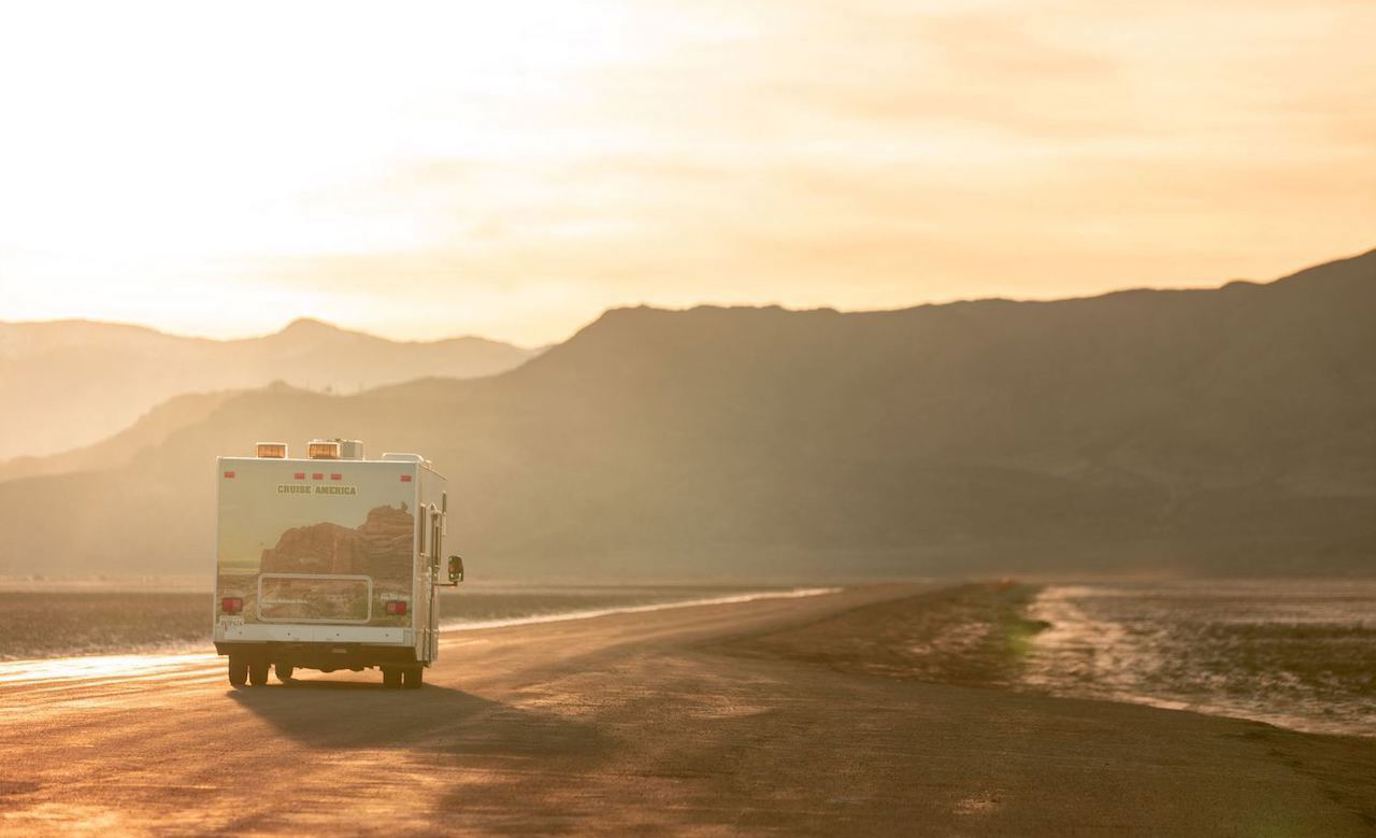
Making upgrades to your RV is essential to keeping your trips operating smoothly and without concerns. Depending on your camping lifestyle, you may want to consider upgrading to RV solar panels. Even if you’ve never used them before, solar panels are flexible, convenient, and ideal for off-grid camping.
That said, these eco-friendly assemblies do come with some drawbacks that may hinder your adventures. If you are on the fence about switching to RV solar panels, then you’re in luck! In this Cruise America guide, we will dive into the pros and cons of these alternate forms of energy so you can make the best decision for your RV lifestyle.
How Do RV Solar Panels Work?
The purpose of solar panels on motorhomes is to allow your vehicle to utilize stored energy in your battery tank. How does this work? The process is more or less the same as any solar installation device. Your panels capture sunlight, which is then converted into electricity and is used to power your appliances. Your charge controller receives an electric current, which controls how much current your battery receives.
If you are new to the market, you’ll find that most solar setups include the following items: a battery bank, solar panels, a charger controller, and a power inverter. Each item serves a different purpose. For example, a battery bank helps keep track of the number of amp hours you have left on your battery. A power inverter converts your panel’s DC power into AC power.
Pros of RV Solar Panels
There are several reasons why campers opt for RV solar panels instead of generators. Let’s explore the benefits in-depth.
Ideal for remote or off-grid camping
If you are a camper who enjoys spending several nights in remote areas with no electrical hookups or other RV-related services, then consider investing in high-quality solar panels. As an off-grid traveler, this means you won’t have to deal with overnight camping fees or trying to find designated campgrounds that offer RV amenities and electricity services.
You can travel wherever you want, get up close to nature, and still receive electrical power when needed. In other words, convenience is a plus!
Can save money in the long run
While there are several costs to consider, installing RV solar panels on your vehicle can save you money in the long run. How exactly is that so? There’s no maintenance, no fuel costs, and no moving parts. Since you’ll be camping in remote locations, you won’t have to worry about camping fees. Of course, this all depends on your equipment and how much sunlight your panels receive.
Less noise at campgrounds
Let’s be honest: no one likes a noisy generator. Not only are they irritating, but they can also leave a bad impression on other campers. Plus, some campgrounds have rules against running them overnight. Avoid the hassles of inconvenient noises and overnight regulations by opting for solar panels instead.
Low emissions
In the ongoing climate crisis era, environmentally-friendly products can help us move towards a sustainable future. Unlike generators, solar panels rely on renewable energy. Plus, you won’t have to deal with concerns about carbon monoxide poisoning.
Cons of RV Solar Panels
Despite the freedom and flexibility that they provide, solar panels aren’t for everyone. Let’s explore some of their drawbacks.
Dependent on the weather
RV solar panels are effective if they receive sunlight. If you’re spending most of your time in large forests or in shaded spots, you won’t receive much power from solar panels. Even if you maximize the amount of energy you receive by parking in the sun, you still have to deal with occasional thunderstorms.
Installation can be complex
Unless you have a detailed understanding of how to install a panel system, it can get overwhelming trying to design an entire system by yourself. You have to draw a wiring diagram, determine the size of your solar needs, measure your roof, etc. For some, tutorial videos are not enough to take on a whole project.
Up-front costs
If you want a high-quality panel system designed to make your camping experience comfortable and convenient, you’ll need to pay high up-front costs. A full-time RV traveler should expect to pay up to $3,000 for a solar setup. The good news is you can find some plug-in-play systems for under $1,000. Plus, they come with major components, including a charger controller, wiring, a battery, and an inverter.
Upgrade Your Travels With Cruise America
RV solar panels are great investments if you’re seeking to enhance your camping lifestyle, transition to clean energy and get up close with remote destinations. If you decide you’re not ready to make the switch, no worries!
With a Cruise America RV rental, you get a 4kw generator that has the capacity to power 120-volt outlets and multiple kitchen appliances.
Contact us today to explore your options!





